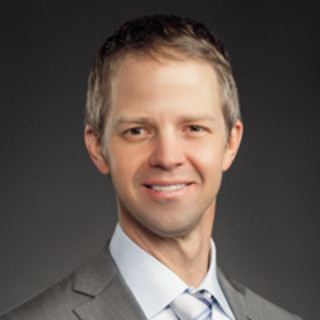I was commuting home from an academic conference, listening to the audiobook Mastery by Robert Greene in the hopes of gleaning some hints of how to be a better father, surgeon, and husband (not necessarily in that order), when the thought struck me that this would be the perfect book for my college-aged nephew.
Like many people in their early 20s who are coming of age and entering their college years in the middle of the pandemic, he seems to be grasping for direction and purpose in his studies as he transitions to adulthood and independence and ferrets a path in life for himself. So I shared the link to the book, telling him I thought it would be helpful while he was on summer break, and that if he was interested, I would buy it for him. The reply came quickly.
“I’ll check out that book. I found an audio version on YouTube.”
Feeling that I'd missed some useful life hack, and wondering if this was just something that middle-aged borderline millennials (me) were not privy to, I checked out the YouTube myself. The top hits were summaries, not full books, some of them animated, all of them light on depth and heavy on one-liners and catch phrases.
Unfortunately, reading the CliffsNotes, taking the easy way, is alluring but antithetical to the central thesis of the complete novel, which by careful logic and countless examples demonstrates what you already learned from medical school. Namely, that mastery requires countless hours of dedicated practice, followed by guided learning under the tutelage of a master, some hard-won experience, a decent amount of self-reflection, and a dash of luck. This is the only reliable path to finding mastery in your field.
Well, that’s disappointing. It’s 2023. We need an easier way.
Back on the road, as the miles rolled by, I found myself thinking more about my nephew and wished there was some simple set of instructions. Something catchy but effective.
I looked back at my career so far, while keeping my eyes on the road, of course, and gradually developed an idea. A three-step plan for achieving mastery in surgery, medicine, and life. When I pulled over to scrawl it down, it seemed so easy. But it’s not.
Step 1: Suffer interminably until you find the absolute limits of what you can do.
Suffering is an unpopular term these days. It implies pain, discomfort, and hardship. But it is relative. Practicing piano would certainly be suffering to me, but it would not be to Mozart or even a modern prodigy who found joy or an outlet in music. Difficulties can also be stimulating, as the sand to the oyster, pressure to coal. While it is uncomfortable in the moment, it is necessary if you want pearls or diamonds. It takes commitment to a process, a long view, hope, faith, or a quiet determination.
This suffering phase, or stimulating phase if you prefer, can take many forms.
As a medical student, it might mean offering your energies to a faculty member to perform tedious research tasks that require no expertise at all, while studying for your Step exams and learning the fundamentals of medicine.
Later, it might mean staying past duty hours or post-call on occasion to work with your favorite attending who happens to be without a resident that day. Learning to work while tired should not be a lifestyle, but it should be in your repertoire, because it’s going to happen in the real world, and being present opens opportunities not available to the absent.
It might mean, as a senior resident or fellow, taking detailed notes on procedures you see, examining not just what was done, but how the room was managed. The small details of arranging the lights, positioning the patient, or executing a meticulous approach are often the steps that make the most difficult cases seem possible, or even simple. Being truly present means being an active observer, listening and watching, and being an opportunist already looking for ways to improve.
It might mean doing some extra work in a related but not required aspect of your chosen field. For example, helping the program director, teaching junior residents, joining a committee, getting involved with your academy or the administration of your institution, to name a few.
As a young surgeon, on your own for the first time, it can be even worse. It could mean taking on procedures that feel unfamiliar, even frightening, accepting and managing your complications thoughtfully with care and compassion, and avoiding those mistakes in the future. You will grapple with your own failures, your own ineptitude. You will swear to yourself that you can do better. You will not be sure of this promise. You will question yourself, your ability, and the choices that brought you to these low places.
Whatever form your tormentor takes, the one certainty is that it will not be easy or convenient. It will not be painless. When you feel like you have finally found your limits, you are ready for Step 2.
Step 2: Push past your limits to discover what else is possible.
Like Step 1, this can take many forms.
It may be taking more time away to attend courses and conferences, or to return to the cadaver lab to really understand anatomy with greater depth. It may mean reading academic journals, not just for the discussion and conclusions but for the methods, and following these trains of thought through the literature.
It may mean making experiments of your own and honestly assessing the results. It may mean talking to friends and colleagues who have found some success, some path you had never considered. It may mean accepting that everything you thought you knew may not be so.
And if you thought the failures of Step 1 were humbling, hold on; because if you keep going, you may realize that even your mentors were wrong. You may finally realize and understand that it’s indeed turtles all the way down.
Which leads to Step 3.
Step 3: Repeat Step 1
The new paradigm requires renewed attention, renewed focus, and renewed application to the craft.
But wait. If that seems depressing, don’t yet despair.
The good news is that you do get better at learning with time. While the process takes a long time, after a few cycles, you get better.
There is also acceptance. The longer you are on the path, the more you accept that becoming a good surgeon is a journey as much as a destination. The practice becomes less like suffering as you rid yourself of any delusions that this will ever end, and you find comfort in the process of slow but steady improvement. As you look back over longer periods of time, it’s easier to see how far you have come and paradoxically, to see how much lies beyond the next horizon.
When this happens, the suffering becomes less. The skill you gain passing over each hill allows you to hope for bigger and better things ahead over the next one. You skip past the first four steps of grieving and move right to acceptance every time you convince yourself of something new.
Then, maybe…
Maybe one unremarkable day, without you knowing it, and without completely resolving your own doubts, others begin to see you as a master. Perhaps you reach nirvana and escape the cycle of suffering all together. Certainly, statues of the Buddha do not reflect either discomfort or pain.
You may one day even convince others of your own ideas, make a great discovery, and lead others in a new direction. Maybe you become so masterful that some student or journalist writes your biography. Then a blogger may even post it on YouTube, summarize your life in eight minutes, and add some catchy animations. Maybe.
There is no way to know. Except to try.
What steps have you taken to master your personal and professional goals? Share in the comments.
Brian Gilmer is an orthopaedic sports medicine surgeon in Mammoth Lakes, CA, and Reno, NV. When not commuting and listening to audiobooks, he often sits in silence and thinks about improving himself. He has achieved no degree of mastery in anything in particular, but he is trying.
Image by Rudzhan Nagiev / Getty






